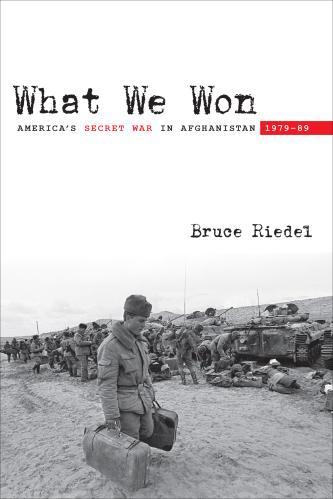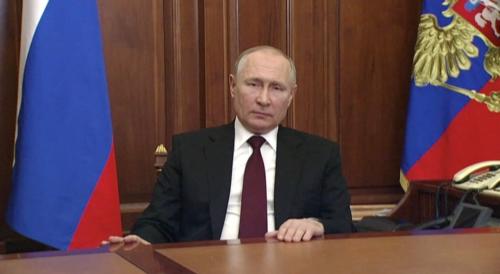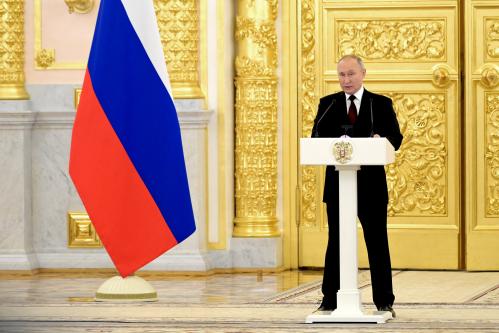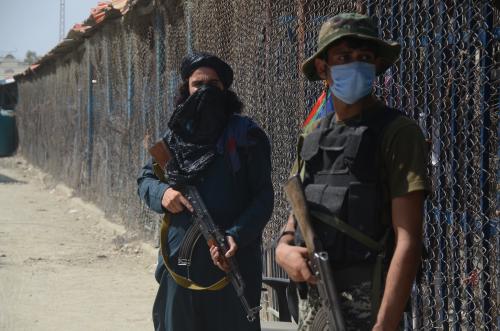Even before Russia launched its invasion of Ukraine earlier today, several commentators, including former Secretary of State Madeleine Albright, argued convincingly that a Russian occupation of more of Ukraine, perhaps including Kyiv, would lead to an insurgency like that which the Soviet Union faced in Afghanistan in the 1980s. Defeat in Afghanistan was a major factor in the break-up of the Warsaw Pact and ultimately the Union of Soviet Socialist Republics, which Russian President Vladimir Putin has called the “greatest geopolitical catastrophe of the century.” It is important to understand how the Soviets were defeated by the mujahideen in the 1980s to understand if Ukraine could be a repeat.
The Afghan resistance did virtually all the fighting against the Russian 40th Army that occupied Afghanistan starting on Christmas Eve 1979. I was in the Central Intelligence Agency (CIA) operations center in Langley, Virginia when the Soviets seized Kabul. The resistance was massive and spontaneous. But the Afghans were not alone.
President Jimmy Carter rapidly mobilized a strategic alliance to fight the Russians. Within two weeks he had persuaded Pakistani leader Zia ul-Huq to support the mujahideen with refuge, bases, and training in Pakistan. The United States and Saudi Arabia would jointly fund the insurgency. The Pakistani intelligence service, the ISI (Inter-Services Intelligence), would be the patrons of the mujahideen; the CIA and the Saudi intelligence service would be the financiers and quarter masters of the war. No CIA officer ever was deployed in Cold War Afghanistan. Our British counterparts, MI6, did send officers into Afghanistan to deliver select weapons and training. The ISI did all the rest; it was Zia’s war. The ISI trained and occasionally led the mujahideen in battle, even striking into Soviet Central Asia.
Being the frontline state behind the mujahideen brought considerable risk and danger for Pakistan. The Russians supported Pakistani dissidents who organized terror attacks inside the country including hijacking Pakistani civilian aircraft and attempts to assassinate Zia (who died in a suspicious plane crash in 1988). Pakistani fighters engaged Soviet aircraft in dogfights. The Pakistani tribal border areas became dangerous and unruly. A Kalashnikov culture emerged that still haunts Pakistan today.
For Washington and Riyadh, the operation was fairly inexpensive. The Saudi intelligence chief, Prince Turki al-Faisal, has recently written that the Saudis spent $2.7 billion supporting the Afghans; the CIA spent about the same. Saudi private sources led by then-governor of Riyadh province, now King Salman, raised another $4 billion for the rebels. Saudi citizens including Osama bin Laden joined the mujahideen but very few actually engaged in combat.
The Afghan people paid a horrible cost for the war. As I wrote in “What We Won: America’s Secret War in Afghanistan,” at least a million Afghans died, five million became refugees in Pakistan and Iran, and millions more were displaced in their own country. But they won.
The Soviets never sent enough soldiers to defeat the insurgents and could not recruit enough Afghans to fight with them. The Pakistanis were not intimidated by the Russians. The Afghan people fought for their independence.
The Afghan analogy offers important questions for the new war in Ukraine. Which state or states will be the frontline sponsor? Are they ready to take the heat from Russia? How much support will the United States and NATO provide? Will the insurgency spark a broader conflict, and can it be contained? Are Ukrainians prepared to pay the price?
Poland and Romania are the states closest to the Ukraine. Both are NATO members with U.S. troops deployed in their territory. The U.S. has an explicit commitment to come to their defense in Article Five of the NATO Treaty; we had no such commitment to Pakistan. (Ironically, Pakistani Prime Minister Imran Khan is in Moscow this week for a long-planned visit.)
I believe the United States and NATO should help the Ukrainian resistance but we should understand the potential consequences, risks, and costs up front. Putin’s decision to attack Ukraine could well prove to be another geopolitical catastrophe for Russia but only if we help the Ukrainian resistance.








Commentary
Could Ukraine be Putin’s Afghanistan?
February 24, 2022